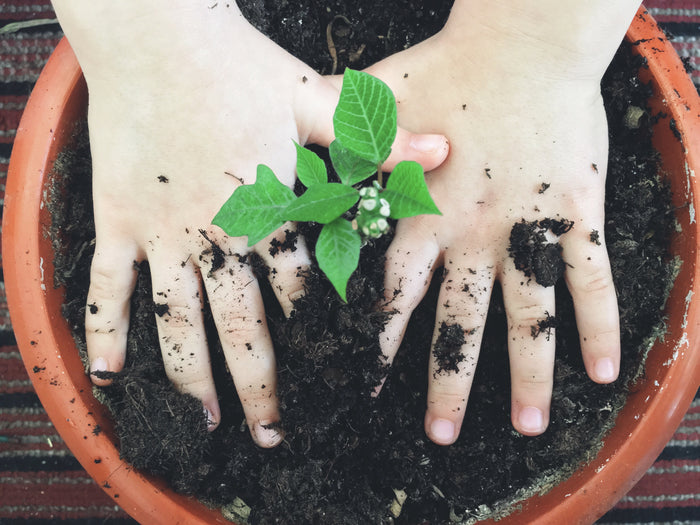How Using Social Media Affects Teenagers
Experts say kids are growing up with more anxiety and less self-esteem.
Many parents worry about how exposure to technology might affect toddlers developmentally. We know our preschoolers are picking up new social and cognitive skills at a stunning pace, and we don’t want hours spent glued to an iPad to impede that. But adolescence is an equally important period of rapid development, and too few of us are paying attention to how our teenagers’ use of technology—much more intense and intimate than a 3-year-old playing with dad’s iPhone—is affecting them. In fact, experts worry that the social media and text messages that have become so integral to teenage life are promoting anxiety and lowering self-esteem.
Young people report that there might be good reason to worry. A survey conducted by the Royal Society for Public Health asked 14-24 year olds in the UK how social media platforms impacted their health and wellbeing. The survey results found that Snapchat, Facebook, Twitter and Instagram all led to increased feelings of depression, anxiety, poor body image and loneliness.
Teens are masters at keeping themselves occupied in the hours after school until way past bedtime. When they’re not doing their homework (and when they are) they’re online and on their phones, texting, sharing, trolling, scrolling, you name it. Of course before everyone had an Instagram account teens kept themselves busy, too, but they were more likely to do their chatting on the phone, or in person when hanging out at the mall. It may have looked like a lot of aimless hanging around, but what they were doing was experimenting, trying out skills, and succeeding and failing in tons of tiny real-time interactions that kids today are missing out on. For one thing, modern teens are learning to do most of their communication while looking at a screen, not another person.
“As a species we are very highly attuned to reading social cues,” says Dr. Catherine Steiner-Adair, a clinical psychologist and author of The Big Disconnect. “There’s no question kids are missing out on very critical social skills. In a way, texting and online communicating—it’s not like it creates a nonverbal learning disability, but it puts everybody in a nonverbal disabled context, where body language, facial expression, and even the smallest kinds of vocal reactions are rendered invisible.”
Certainly speaking indirectly creates a barrier to clear communication, but that’s not all. Learning how to make friends is a major part of growing up, and friendship requires a certain amount of risk-taking. This is true for making a new friend, but it’s also true for maintaining friendships. When there are problems that need to be faced—big ones or small ones—it takes courage to be honest about your feelings and then hear what the other person has to say. Learning to effectively cross these bridges is part of what makes friendship fun and exciting, and also scary. “Part of healthy self-esteem is knowing how to say what you think and feel even when you’re in disagreement with other people or it feels emotionally risky,” notes Dr. Steiner-Adair.
But when friendship is conducted online and through texts, kids are doing this in a context stripped of many of the most personal—and sometimes intimidating—aspects of communication. It’s easier to keep your guard up when you’re texting, so less is at stake. You aren’t hearing or seeing the effect that your words are having on the other person. Because the conversation isn’t happening in real time, each party can take more time to consider a response. No wonder kids say calling someone on the phone is “too intense”—it requires more direct communication, and if you aren’t used to that it may well feel scary.
If kids aren’t getting enough practice relating to people and getting their needs met in person and in real time, many of them will grow up to be adults who are anxious about our species’ primary means of communication—talking. And of course social negotiations only get riskier as people get older and begin navigating romantic relationships and employment.
The other big danger that comes from kids communicating more indirectly is that it has gotten easier to be cruel. “Kids text all sorts of things that you would never in a million years contemplate saying to anyone’s face,” says Dr. Donna Wick, a clinical and developmental psychologist. She notes that this seems to be especially true of girls, who typically don’t like to disagree with each other in “real life.”
“You hope to teach them that they can disagree without jeopardizing the relationship, but what social media is teaching them to do is disagree in ways that are more extreme and do jeopardize the relationship. It’s exactly what you don’t want to have happen,” she says.
Dr. Steiner-Adair agrees that girls are particularly at risk. “Girls are socialized more to compare themselves to other people, girls in particular, to develop their identities, so it makes them more vulnerable to the downside of all this.” She warns that a lack of solid self-esteem is often to blame. “We forget that relational aggression comes from insecurity and feeling awful about yourself, and wanting to put other people down so you feel better.”
Peer acceptance is a big thing for adolescents, and many of them care about their image as much as a politician running for office, and to them it can feel as serious. Add to that the fact that kids today are getting actual polling data on how much people like them or their appearance via things like “likes.” It’s enough to turn anyone’s head. Who wouldn’t want to make herself look cooler if she can? So kids can spend hours pruning their online identities, trying to project an idealized image. Teenage girls sort through hundreds of photos, agonizing over which ones to post online. Boys compete for attention by trying to out-gross one other, pushing the envelope as much as they can in the already disinhibited atmosphere online. Kids gang up on each other.
Adolescents have always been doing this, but with the advent of social media they are faced with more opportunities—and more traps—than ever before. When kids scroll through their feeds and see how great everyone seems, it only adds to the pressure. We’re used to worrying about the impractical ideals that photoshopped magazine models give to our kids, but what happens with the kid next door is photoshopped, too? Even more confusing, what about when your own profile doesn’t really represent the person that you feel like you are on the inside?
“Adolescence and the early twenties in particular are the years in which you are acutely aware of the contrasts between who you appear to be and who you think you are,” says Dr. Wick. “It’s similar to the ‘imposter syndrome’ in psychology. As you get older and acquire more mastery, you begin to realize that you actually are good at some things, and then you feel that gap hopefully narrow. But imagine having your deepest darkest fear be that you aren’t as good as you look, and then imagine needing to look that good all the time! It’s exhausting.”
As Dr. Steiner-Adair explains, “Self-esteem comes from consolidating who you are.” The more identities you have, and the more time you spend pretending to be someone you aren’t, the harder it’s going to be to feel good about yourself.
Another big change that has come with new technology and especially smart phones is that we are never really alone. Kids update their status, share what they’re watching, listening to, and reading, and have apps that let their friends know their specific location on a map at all times. Even if a person isn’t trying to keep his friends updated, he’s still never out of reach of a text message. The result is that kids feel hyperconnected with each other. The conversation never needs to stop, and it feels like there’s always something new happening.
“Whatever we think of the ‘relationships’ maintained and in some cases initiated on social media, kids never get a break from them,” notes Dr. Wick. “And that, in and of itself, can produce anxiety. Everyone needs a respite from the demands of intimacy and connection; time alone to regroup, replenish and just chill out. When you don’t have that, it’s easy to become emotionally depleted, fertile ground for anxiety to breed.”
It’s also surprisingly easy to feel lonely in the middle of all that hyperconnection. For one thing, kids now know with depressing certainty when they’re being ignored. We all have phones and we all respond to things pretty quickly, so when you’re waiting for a response that doesn’t come, the silence can be deafening. The silent treatment might be a strategic insult or just the unfortunate side effect of an online adolescent relationship that starts out intensely but then fades away.
“In the old days when a boy was going to break up with you, he had to have a conversation with you. Or at least he had to call,” says Dr. Wick. “These days he might just disappear from your screen, and you never get to have the ‘What did I do?’ conversation.” Kids are often left imagining the worst about themselves.
But even when the conversation doesn’t end, being in a constant state of waiting can still provoke anxiety. We can feel ourselves being put on the back burner, we put others back there, and our very human need to communicate is effectively delegated there, too.
Both experts interviewed for this article agreed that the best thing parents can do to minimize the risks associated with technology is to curtail their own consumption first. It’s up to parents to set a good example of what healthy computer usage looks like. Most of us check our phones or our email too much, out of either real interest or nervous habit. Kids should be used to seeing our faces, not our heads bent over a screen. Establish technology-free zones in the house and technology-free hours when no one uses the phone, including mom and dad. “Don’t walk in the door after work in the middle of a conversation,” Dr. Steiner-Adair advises. “Don’t walk in the door after work, say ‘hi’ quickly, and then ‘just check your email.’ In the morning, get up a half hour earlier than your kids and check your email then. Give them your full attention until they’re out the door. And neither of you should be using phones in the car to or from school because that’s an important time to talk.”
Not only does limiting the amount of time you spend plugged in to computers provide a healthy counterpoint to the tech-obsessed world, it also strengthens the parent-child bond and makes kids feel more secure. Kids need to know that you are available to help them with their problems, talk about their day, or give them a reality check.
“It is the mini-moments of disconnection, when parents are too focused on their own devices and screens, that dilute the parent-child relationship,” Dr. Steiner-Adair warns. And when kids start turning to the Internet for help or to process whatever happened during the day, you might not like what happens. “Tech can give your children more information that you can, and it doesn’t have your values,” notes Dr. Steiner-Adair. “It won’t be sensitive to your child’s personality, and it won’t answer his question in a developmentally appropriate way.”
In addition Dr. Wick advises delaying the age of first use as much as possible. “I use the same advice here that I use when talking about kids and alcohol—try to get as far as you can without anything at all.” If your child is on Facebook, Dr. Wick says that you should be your child’s friend and monitor her page. But she advises against going through text messages unless there is cause for concern. “If you have a reason to be worried then okay, but it better be a good reason. I see parents who are just plain old spying on their kids. Parents should begin by trusting their children. To not even give your kid the benefit of the doubt is incredibly damaging to the relationship. You have to feel like your parents think you’re a good kid.”
Offline, the gold standard advice for helping kids build healthy self-esteem is to get them involved in something that they’re interested in. It could be sports or music or taking apart computers or volunteering—anything that sparks an interest and gives them confidence. When kids learn to feel good about what they can do instead of how they look and what they own, they’re happier and better prepared for success in real life. That most of these activities also involve spending time interacting with peers face-to-face is just the icing on the cake.
Reference: Rachel Ehmke by Childmind.org

































